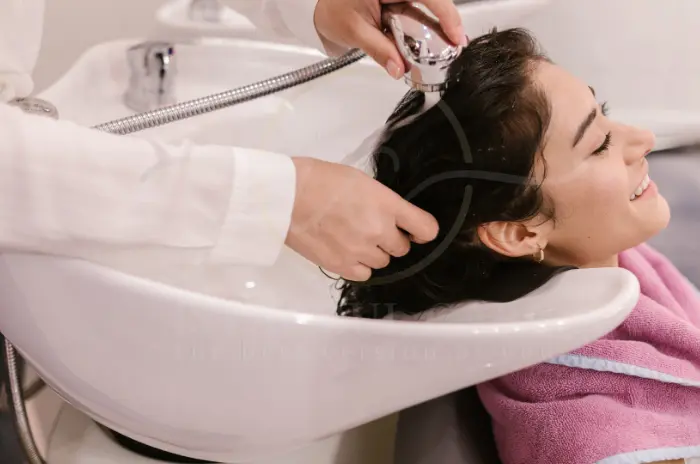Washing your hair is a key part of maintaining hair health, but knowing how often should you wash your hair can be confusing. From product buildup to scalp type, many factors influence your ideal routine. Whether you have curly hair, long hair, or an oily scalp, this guide breaks down the optimal hair washing routine tailored to your needs.
How Shampoo Works
Shampoo helps remove dirt, oil, and product residue from your scalp and hair. Its cleansing agents, called surfactants, attach to oil and rinse it away with water. However, overwashing may strip the scalp of natural oils, leading to dryness or irritation. Key points to remember:
- Surfactants are the primary cleansing agents in shampoo.
- Overwashing can harm the natural balance of your scalp.
- Choose shampoos with nourishing ingredients if washing frequently.Shampoo helps remove dirt, oil, and product residue from your scalp and hair. Its cleansing agents, called surfactants, attach to oil and rinse it away with water. However, overwashing may strip the scalp of natural oils, leading to dryness or irritation.
Should You Wash Your Hair Every Day?
You may wonder, is it bad to wash your hair every day? For most people, daily washing is unnecessary. It can dry out the scalp, especially when using harsh shampoos. However, those with very oily scalps or active lifestyles may need to wash more frequently. Ask yourself:
- Do you experience itching or discomfort if you skip a day?
- Are you using products that leave heavy residue?
- Does your hairstyle require a fresher look daily?You may wonder, is it bad to wash your hair every day? For most people, daily washing is unnecessary. It can dry out the scalp, especially when using harsh shampoos. However, those with very oily scalps or active lifestyles may need to wash more frequently.
Factors That Influence How Often You Need to Shampoo Your Hair
Your optimal hair washing frequency depends on various personal factors:
- Hair type and length
- Scalp condition and oiliness
- Age, lifestyle, and styling habits
Hair Length
Long hair often requires less frequent washing than shorter styles. Natural oils from the scalp take longer to travel down the strands. Washing too frequently can dry out the ends, especially if you're using heat tools or dyes.
Hair Type
Your hair type determines how oil moves through your strands. Thin or fine hair gets greasy faster, while thick or curly hair retains moisture longer. Porosity, texture, and curl pattern also play a role in how frequently you should wash your hair. Understanding your type allows for more personalized care. This ensures you're neither overwashing nor underwashing.
How Often to Wash Thin Hair
People with thin hair may need to wash every other day. Oil becomes noticeable quickly, and buildup can weigh hair down. Using a volumizing shampoo can help maintain lift and body. Avoid heavy conditioners that may flatten the roots. Dry shampoo can be a helpful tool between washes.
How Often to Wash Medium Hair
Medium-density hair typically does well with washing 2-3 times per week. This maintains moisture balance without causing greasiness. A balanced routine of cleansing and conditioning will keep medium hair healthy and manageable. Styling products should be used in moderation to avoid buildup. Scalp care is also important for maintaining overall hair health.
How Often to Wash Thick Hair
Thick hair, especially textured or coily types, can be washed once a week. Overwashing leads to dryness and breakage. Moisturizing masks and oils are beneficial in keeping thick hair nourished. Protective styles can also help maintain moisture between washes. Detangling should be done gently to prevent breakage.
Age
With age, scalp oil production declines. Older individuals may find they only need to wash once or twice a week. Younger people or teens may need more frequent washing due to hormonal oil production. Life stages such as puberty, pregnancy, or menopause can alter oil levels significantly. Adjusting hair care habits with age helps preserve both scalp and hair health. Listening to your hair's response is key to choosing the right frequency.Older individuals may find they only need to wash once or twice a week. Younger people or teens may need more frequent washing due to hormonal oil production.
Scalp Condition
Your scalp health affects your washing schedule. A well-balanced scalp supports healthier hair growth and improves overall strand quality. Conditions like inflammation or buildup may demand tailored washing routines. Consulting a dermatologist can be helpful when common solutions don't resolve issues.
Oily
If your scalp is oily, you may need to shampoo every day or every other day using the best shampoo for oily hair. Look for clarifying ingredients that remove excess sebum without irritating the skin. Avoid heavy conditioners at the roots to prevent faster oil buildup. Monitoring how quickly your roots become greasy will guide your ideal washing schedule.
Dry
For dry scalps, wash less often using the best shampoo for dry hair and a hydrating conditioner. Moisturizing shampoos with ingredients like aloe vera or shea butter can soothe dryness. Scalp massages during conditioning help improve blood flow and hydration. Avoid hot water as it can exacerbate dryness.
Sensitive
Those with sensitive skin should choose gentle formulas and limit washes to twice a week. Fragrance-free and hypoallergenic products are ideal for minimizing irritation. Performing patch tests before using new products can prevent adverse reactions. Keeping a simple routine helps maintain scalp comfort.
Dandruff
Dandruff sufferers benefit from medicated shampoos and more regular washing to manage flaking. Ingredients like ketoconazole or zinc pyrithione target the root causes of dandruff. Avoid scratching the scalp, which can worsen the condition. Consistency in your wash routine is key to controlling symptoms.
Lifestyle and Daily Activities
Exercise Frequency
If you work out daily, sweat buildup may require more frequent washing. However, co-washing hair or rinsing with water can be alternatives. High-intensity workouts increase scalp perspiration, which can clog follicles if not addressed. Using a gentle cleansing product after workouts helps maintain scalp health. Recommended actions:
- Wash with a gentle shampoo after heavy workouts.
- Use a microfiber towel to blot sweat from roots.
- Avoid wearing tight ponytails post-exercise to prevent scalp stress.
Tips:
- Use a headband or sweat-wicking cap during workouts.
- Rinse your scalp with lukewarm water even if you skip shampoo.
- Apply dry shampoo post-exercise to keep roots fresh.If you work out daily, sweat buildup may require more frequent washing. However, co-washing hair or rinsing with water can be alternatives. High-intensity workouts increase scalp perspiration, which can clog follicles if not addressed. Using a gentle cleansing product after workouts helps maintain scalp health.If you work out daily, sweat buildup may require more frequent washing. However, co-washing hair or rinsing with water can be alternatives.
Chemical Processing
Dyed or chemically-treated hair is prone to dryness. Limit shampooing and use color-safe formulas. Regular conditioning treatments are vital to restore moisture lost during chemical processing. Avoid shampoos with sulfates, as they can strip treated hair of essential oils. Extra care tips:
- Space out chemical treatments to minimize damage.
- Use heat-protectant sprays when styling.
- Try bond-repairing treatments to rebuild hair structure.
Best practices:
- Use deep-conditioning masks at least once a week.
- Avoid daily heat styling to prevent damage.
- Consider leave-in conditioners to protect color.Dyed or chemically-treated hair is prone to dryness. Limit shampooing and use color-safe formulas. Regular conditioning treatments are vital to restore moisture lost during chemical processing. Avoid shampoos with sulfates, as they can strip treated hair of essential oils.Dyed or chemically-treated hair is prone to dryness. Limit shampooing and use color-safe formulas.
Use of Styling Products
Heavy product users may need to cleanse more often to prevent buildup and maintain style. Choose lightweight, non-greasy styling formulas when possible. Product residue can accumulate on the scalp, leading to itchiness or dullness. Occasional clarifying treatments can help reset your hair care routine. What to keep in mind:
- Wash styling tools regularly to avoid cross-contamination.
- Choose non-comedogenic hair products to reduce scalp breakouts.
- Layer products sparingly for a cleaner finish.
Helpful tips:
- Use minimal product near the scalp to reduce buildup.
- Clarify once a week if using gels or waxes.
- Opt for water-based products for easier rinsing.Heavy product users may need to cleanse more often to prevent buildup and maintain style. Choose lightweight, non-greasy styling formulas when possible. Product residue can accumulate on the scalp, leading to itchiness or dullness. Occasional clarifying treatments can help reset your hair care routine.Heavy product users may need to cleanse more often to prevent buildup and maintain style.
Oiliness
Genetics and hormones affect how oily your hair becomes. Adapt your routine based on how quickly your roots appear greasy. An oily scalp may also signal an imbalance in your current hair care routine. Regular scalp exfoliation can help control excess sebum.Genetics and hormones affect how oily your hair becomes. Adapt your routine based on how quickly your roots appear greasy.
Products and Styling Habits
Using heat tools or styling products may increase your need to wash your hair more often. Choose nourishing shampoos and always apply conditioner to the ends. Product layering can lead to clogged pores and limp strands. Consider using a weekly detox shampoo to reset your hair.Using heat tools or styling products may increase your need to wash your hair more often. Choose nourishing shampoos and always apply conditioner to the ends.
What to Do in Between Washings
Use Dry Shampoo
Dry shampoo absorbs oil and refreshes your roots without water. It’s a great tool for extending wash days. It also helps add volume and texture to limp hair. Be sure to apply it evenly and brush out any residue.Dry shampoo absorbs oil and refreshes your roots without water. It’s a great tool for extending wash days.
Focus Your Conditioning
Apply shampoo and conditioner only where needed. Condition mainly from mid-length to ends. Avoid applying conditioner directly to the scalp to prevent greasiness. Deep conditioning once a week can also enhance moisture retention.Apply shampoo and conditioner only where needed. Condition mainly from mid-length to ends.
Evaluate Your Styling Products
Use lightweight products to avoid buildup. Clarify weekly if using heavy oils or creams. Pay attention to how your hair reacts to different formulas. You may need to rotate products depending on the season or activity level.Use lightweight products to avoid buildup. Clarify weekly if using heavy oils or creams.
Shampoo Just Your Roots
Target the scalp when shampooing. Let the lather rinse through the ends to cleanse gently. This method helps avoid drying out the lengths of your hair. It's especially useful for those with longer or drier hair types.Target the scalp when shampooing. Let the lather rinse through the ends to cleanse gently.
Top Hair Washing Tips
Here are some essential tips to maximize your hair washing routine:
- Don’t rush—spend enough time massaging your scalp.
- Avoid using your fingernails to scrub the scalp.
- Rinse thoroughly to remove all shampoo and conditioner residues.
Choose the Right Shampoo and Conditioner
Pick products based on your hair type and scalp needs. Avoid sulfates if your hair is color-treated or dry.
Use the Proper Washing Technique
Massage the scalp with fingertips, not nails. Rinse thoroughly to avoid residue.
Keep the Care Going Beyond the Wash
Use leave-in conditioners or hair masks weekly. Trim split ends regularly for optimal hair health.
Listen to Your Hair’s Needs
Observe how your hair responds to your routine. Adjust based on seasons, hormones, and activities.
 should you wash your hair before dying it
should you wash your hair before dying it
What Sort of Shampoos Should People Be Using Based on Their Hair Types?
To choose the best shampoo, match it to your needs:
- Oily hair: look for clarifying agents like tea tree oil or salicylic acid.
- Dry hair: opt for moisturizing ingredients such as glycerin or argan oil.
- Curly/coily hair: choose sulfate-free, deeply hydrating options.
| Hair Type | Recommended Shampoo |
|---|---|
| Oily | Clarifying or balancing formulas |
| Dry | Moisturizing, sulfate-free |
| Curly | Hydrating and sulfate-free |
| Color-Treated | Color-safe, gentle cleansers |
| Fine | Volumizing and lightweight |
| Coily/Thick | Creamy, hydrating, low-lather |
| Hair Type | Recommended Shampoo |
| Oily | Clarifying or balancing formulas |
| Dry | Moisturizing, sulfate-free |
| Curly | Hydrating and sulfate-free |
| Color-Treated | Color-safe, gentle cleansers |
| Fine | Volumizing and lightweight |
| Coily/Thick | Creamy, hydrating, low-lather |
Is Shampoo Bad for Your Hair?
While shampoo plays a key role in hygiene, improper use can cause problems:
- Choose a formula suited to your scalp type.
- Overuse of harsh shampoos may lead to dryness.
- Pair shampoo with a good conditioner to maintain balance.
Not necessarily. The problem is overwash or underwash, or using the wrong formula. Choose mild shampoos and avoid excessive frequency unless your lifestyle requires it.
Should I Wash My Hair Every Day?
Consider the following when deciding if daily washing suits you:
- Do you exercise or sweat heavily on a daily basis?
- Does your scalp produce excess oil quickly?
- Are you using styling products that build up fast?
Unless you have an extremely oily scalp or sweat heavily, daily washing isn't recommended. Try to wash 2-3 times weekly for balance. Unless you have an extremely oily scalp or sweat heavily, daily washing isn't recommended. Try to wash 2-3 times weekly for balance.
What Happens If You Don’t Wash Your Hair?
Here’s what may happen when you skip too many washes:
- Scalp oil and sweat can mix with product residue.
- Follicles can become clogged, affecting hair growth.
- Bacteria or fungus may develop in extreme cases.
Skipping washes too long can lead to oil, product buildup, and scalp irritation. It can also impact hair growth due to clogged follicles. Skipping washes too long can lead to oil, product buildup, and scalp irritation. It can also impact hair growth due to clogged follicles.
How to Go Longer Between Washes
To extend the time between washes, consider these helpful strategies:
- Use a satin or silk scarf at night to minimize oil transfer.
- Train your scalp by gradually increasing days between washes.
- Apply dry shampoo the night before instead of the morning for better absorption.
- Use dry shampoo
- Avoid touching your hair frequently
- Sleep on silk pillowcases
- Wear protective styles
Alternative Shampoos
Dry Shampoo
Great for refreshing oily roots and adding volume without water. Choose a formula that matches your hair color. It can be used between workouts or busy days to maintain freshness. Avoid overuse, as buildup may require clarifying treatments.Great for refreshing oily roots and adding volume without water. Choose a formula that matches your hair color.
Co-Washing
Short for conditioner-washing, co-washing is ideal for dry, curly hair. It cleanses gently without stripping oils. Use a lightweight, silicone-free conditioner for best results. Co-washing is not ideal for fine or oily hair types as it may cause buildup.Short for conditioner-washing, co-washing is ideal for dry, curly hair. It cleanses gently without stripping oils.
Water Only
Water-only hair washing skips all products. It works best for low-oil, non-styled hair and requires adjustment time. It can help preserve natural oils and reduce dependency on commercial shampoos. However, it may not effectively remove heavy product buildup or pollution.Water-only hair washing skips all products. It works best for low-oil, non-styled hair and requires adjustment time.
We’re ready to answer your questions
It depends on your hair thickness and oil level. Thin hair may need washing every other day, while thick or curly hair can go a week.
Yes, for most people. Daily washing can strip natural oils and dry out the scalp.Hair type, scalp condition, activity level, and styling habits all impact frequency.Signs include greasy roots, flat texture, odor, and itchiness.Use dry shampoo, avoid heavy styling, and tie your hair loosely when sleeping.Yes. You can try co-washing, dry shampoo, or water-only hair washing.Excess oil and product buildup can clog follicles and cause scalp issues.Use lightweight products, limit heat tools, and sleep on a silk pillowcase.
Follow us on social media for updates, tips, and patient success stories:


